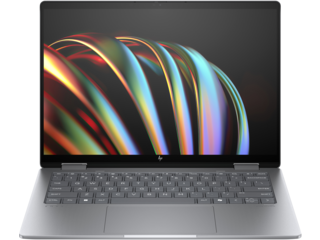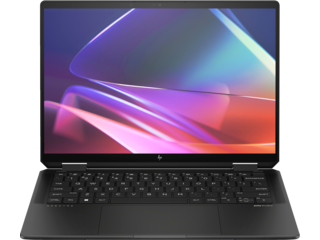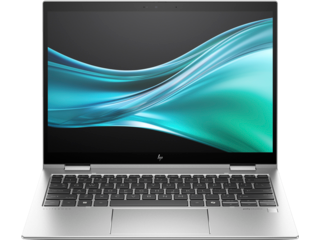In the ever-evolving world of technology, the debate of
laptop vs
tablet continues to be a hot topic. Each device has its own strengths and weaknesses, making the choice between them dependent on your specific needs and preferences. This comprehensive guide will help you understand the key differences between tablets and laptops, their respective advantages, and which one might be the best fit for you.
Understanding Tablets and Laptops
What is a Tablet?
A tablet is a portable touchscreen device that combines features of both smartphones and laptops. It’s typically smaller and lighter than a laptop, with a focus on mobility and ease of use. Tablets run on mobile operating systems and are primarily designed for media consumption, web browsing, and light productivity tasks.
What is a Laptop?
A laptop, also known as a notebook, is a portable personal computer with a built-in keyboard, screen, and trackpad or pointing device. Laptops run full desktop operating systems and are designed to handle a wide range of tasks, from basic web browsing to complex productivity applications and even gaming. The average laptop typically runs for about four to eight hours due to the power demands of their hardware components.
Key Differences Between Tablets and Laptops
- Form Factor: Tablets are typically thinner and lighter, while laptops have a clamshell design with an attached physical keyboard. Tablets weigh less than laptops, making them more portable.
- Input Method: Tablets rely primarily on touchscreen input, while laptops have physical keyboards and trackpads. Laptops with an attached physical keyboard enhance the typing experience for documents and emails.
- Operating System: Tablets usually run mobile OS like iOS or Android, while laptops run desktop OS like Windows or macOS.
- Processing Power: Most laptops generally have more powerful processors and can handle more demanding tasks.
- Storage: Laptops typically offer greater storage capacity relative to tablets. They come with various configurations, including different amounts of storage space. Tablets have less storage capacity than laptops, which can be a drawback for users needing more data storage.
- Battery Life: Tablets often have longer battery life due to their less power-hungry components.
- Connectivity: Laptops usually have more ports and connectivity options compared to tablets.
- Software Compatibility: Laptops can run a wider range of software applications than tablets.
- Display: While both can have high-resolution screens, laptops often have larger displays, which can be beneficial for multitasking and productivity.
- Price Range: Tablets generally start at a lower price point, but high-end tablets can be as expensive as mid-range laptops.
- 2-in-1 Devices: Some devices come with a detachable keyboard, allowing them to bridge the gap between tablets and laptops. This feature provides a tactile input option, improving the typing experience compared to touchscreen interfaces.
- Multitasking: Laptops can run multiple programs simultaneously, highlighting their power and efficiency for work-related tasks that require handling several applications at once.
Intel® Core™ 3 processor
128GB PCIe® SSD
8GB RAM
14" Touchscreen
Pavilion x360 14"
$409.99
Intel® Core™ Ultra 7
1TB PCIe® SSD
16GB RAM
14" 3K OLED Touch
Intel® Core™ Ultra 7
2TB PCIe® SSD
16GB RAM
14" 3K Touch
Spectre x360 14"
$1,399.99
Advantages of Tablets
- Highly portable and lightweight
- Long battery life
- Intuitive touchscreen interface
- Great for media consumption and light productivity
- Often more affordable than laptops
- Instant-on functionality
- Excellent for digital reading and note-taking
- Usually have better front-facing cameras for video calls
Advantages of Laptops
- More powerful processors for demanding tasks
- Physical keyboard for easier typing
- Larger screens for multitasking
- Most laptops have greater storage capacity relative to tablets
- Run full desktop applications
- More versatile for a wide range of tasks
- Better for content creation and editing
- Typically have more upgrade options
Choosing Between a Tablet and a Laptop
When deciding between a tablet and a laptop, consider the following factors:
- Primary Use: If you mainly consume content (reading, browsing, watching videos), a tablet might be sufficient. For content creation or heavy productivity, a laptop is usually better.
- Portability Needs: If you travel frequently and need something ultra-portable, a tablet might be the better choice.
- Software Requirements: Check if the apps you need are available on tablet platforms. If you require specific desktop software, a laptop is necessary.
- Typing Needs: If you do a lot of typing, a laptop’s attached physical keyboard is generally more comfortable for long sessions. For 2-in-1 devices, a detachable keyboard can enhance functionality, providing a tactile input option that improves the typing experience compared to touchscreen interfaces.
- Budget: Determine your budget and compare the features you can get in a tablet vs. a laptop at that price point.
- Battery Life: If long battery life is crucial, tablets generally have an edge.
- Connectivity: Consider the ports and connectivity options you need. Laptops typically offer more in this area.
⚡ Flagship 2-in-1 Laptop
Top Pick!
HP Elite x360 830 G11 2-in-1
- Intel® Core™ Ultra 7 with Intel® Graphics
- 32GB RAM and fast 1TB SSD storage
- 13.3" WUXGA touchscreen display
Intel® Core™ Ultra 7 | 32GB RAM | Touch Display
Product Recommendations
HP Spectre x360 2-in-1 Laptop 14t-eu000, 14"
The
HP Spectre x360 is a versatile 2-in-1 device that offers the best of both worlds - the power of a laptop and the flexibility of a tablet. Its 360-degree hinge allows you to use it in various modes, making it perfect for both productivity and entertainment.
- 14" diagonal display
- Intel® Core™ Ultra 5 125H processor
- Intel® Arc™ Graphics
- 16 GB memory; 512 GB SSD storage
The Spectre x360 combines powerful performance with versatility. Its Intel Core Ultra 5 processor and
16 GB of RAM ensure smooth multitasking and efficient performance for demanding applications. The touchscreen display and convertible design make it excellent for both work and creative pursuits. Whether you’re typing up reports, sketching designs, or enjoying multimedia content, this device adapts to your needs.
HP Envy x360 2-in-1 Laptop 15t-fe100, 15.6"
For those who need a larger screen but still want the flexibility of a 2-in-1 device, the
HP Envy x360 15t-fe100 is an excellent choice. This laptop offers a spacious 15.6" display while maintaining the versatility of a convertible design.
- 15.6" diagonal display
- Intel® Core™ Ultra 5 125U processor
- Intel® Graphics
- 16 GB memory; 512 GB SSD storage
The Envy x360 15t-fe100 offers a perfect balance of performance and versatility. Its larger screen is ideal for productivity tasks and media consumption, while the 2-in-1 design allows you to use it as a tablet when needed. The Intel Core Ultra 5 processor provides ample power for multitasking and demanding applications, making this an excellent choice for students, professionals, or anyone who needs a versatile device with a larger display.
OMEN Gaming Laptop 16t-wf100, 16.1"
For those who prioritize performance, particularly for gaming or intensive tasks, the OMEN
Gaming Laptop 16t-wf100 is a top-tier choice. This powerful laptop is designed to handle demanding applications and provide an immersive gaming experience.
- 16.1" diagonal display
- Intel® Core™ i7-14700HX processor
- NVIDIA® GeForce RTX™ 4050 Laptop GPU
- 16 GB memory; 512 GB SSD storage
The OMEN Gaming Laptop 16t-wf100 is a powerhouse that can handle anything from intensive gaming to complex video editing and 3D rendering. Its high-performance Intel Core i7 processor and NVIDIA RTX graphics ensure smooth performance in graphics-intensive tasks. This laptop is ideal for gamers, content creators, or professionals who need desktop-level performance in a portable package.
Frequently Asked Questions
Are tablets better than laptops?
Tablets and laptops excel in different areas. Tablets are better for portability, battery life, and touchscreen interactions, while laptops are superior for productivity tasks, multitasking, and running complex software. However, tablets generally have less storage capacity compared to laptops, which can be a drawback for users needing more data storage.
Can a tablet replace a laptop?
For some users, a tablet can replace a laptop, especially if their primary needs are web browsing, email, and light productivity tasks. However, for users who require powerful processing, extensive multitasking, or specialized software, a laptop is still the better choice.
What is one way in which tablets differ from laptops and notebooks?
One key difference is the input method. Tablets primarily use touchscreen input, while laptops and notebooks have physical keyboards and trackpads.
Should I get a tablet or laptop for college?
This depends on your field of study and personal preferences. If you need to run specialized software or type long papers, a laptop might be better. If you primarily need to take notes, read textbooks, and do light research, a tablet could suffice.
Are tablets good for productivity?
Tablets can be good for certain types of productivity, especially with the addition of a keyboard case. They excel at tasks like note-taking, sketching, and light document editing. However, for more intensive productivity tasks, laptops generally perform better.
Can I use a tablet for video editing?
While there are some capable video editing apps for tablets, laptops are generally better suited for video editing due to their more powerful processors and larger screens.
Do tablets have USB ports?
Some tablets have USB-C ports, but many don’t have traditional USB-A ports. Laptops typically have more port options, including multiple USB ports.
Can I print from a tablet?
Yes, most tablets support wireless printing to compatible
printers. However, setting up and using printers is often easier with laptops.
Is a tablet or laptop better for gaming?
For most gaming experiences, especially for more demanding games, a laptop is better suited due to its more powerful hardware. However, tablets are great for casual mobile games.
How long do tablets typically last in terms of battery life compared to laptops?
The lifespan of both tablets and laptops can vary greatly depending on usage and care. However, laptops often have a longer useful life due to their ability to be upgraded and repaired more easily. Tablets may become obsolete faster due to their non-upgradeable nature.
Can I use a mouse or a detachable keyboard with a tablet?
Many tablets support Bluetooth mice, which can be useful for certain tasks. However, the touch-centric interface of tablets means that mouse support may not be as seamless as on a laptop.
Conclusion
The choice between a tablet and a laptop ultimately depends on your specific needs, preferences, and use cases. If you prioritize portability, long battery life, and touchscreen interaction, a tablet might be the best choice. If you need more processing power, a physical keyboard, and the ability to run complex software, a laptop would be more suitable.
For many users, a 2-in-1 device like the HP Spectre x360 or the HP Envy x360 can offer the best of both worlds, combining the strengths of tablets and laptops into a single, versatile device. On the other hand, if you need maximum performance for demanding tasks, a powerful laptop like the OMEN Gaming Laptop might be the way to go.
Consider your primary activities, software requirements, and mobility needs when making your decision. Whether you choose a tablet, laptop, or 2-in-1 device, today’s technology offers powerful and flexible options to suit a wide range of computing needs.
Remember, there’s no one-size-fits-all solution. The best device for you is the one that aligns with your specific requirements and enhances your productivity and enjoyment. Take the time to assess your needs, try out different devices if possible, and make an informed decision that will serve you well in the long run.
About the Author
Zach Cabading is a contributing writer for HP® Tech Takes. Zach is a content creation specialist based in Southern California, and creates a variety of content for the tech industry.
Popular HP Convertible and Detachable Laptops






















